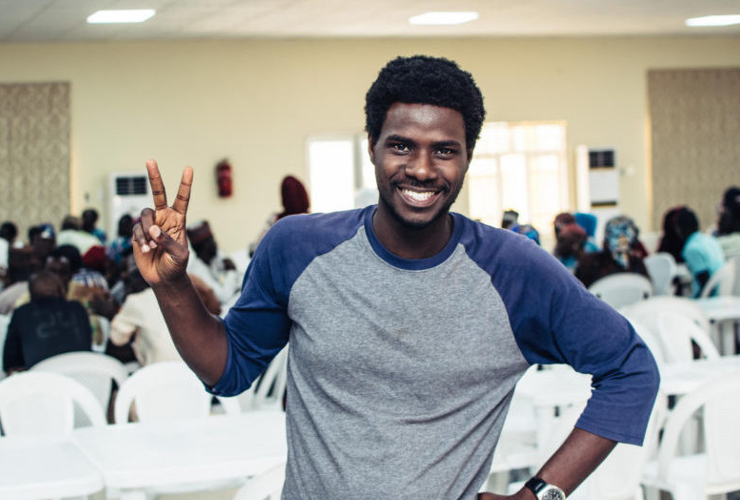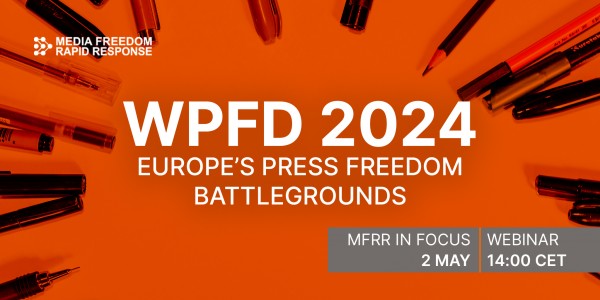In 2010, hundreds of children were falling ill and dying in the poverty-stricken village of Bagega in northern Nigeria, but nobody knew why. Around that time, villagers had been mining nearby gold deposits in the hope for more income. It turned out that those gold veins were mixed with lead. The miners accidentally caused the toxins to spread to the air and eventually brought them back home through their clothes.
The result was an environmental disaster that killed 400 children and left over 1,000 suffering from lead poisoning. The Nigerian government promised to clean up the area and fund healthcare for the sick children. However, by 2012, nothing had happened.
That is when a group of young Nigerians stepped in. The community in Bagega reached out to Connected Development (CODE), which is an NGO aiming to empower marginalized communities and help them to hold those in power to account. CODE members travelled to Bagega, recorded community members’ statements about the situation, reached out to top politicians via Facebook and Twitter and started an online petition demanding that the government release the necessary funds.
“The issue was not collecting the money, since the money was there, but making sure the money got to the community, because it went missing somewhere”, Oludotun Babayemi, CODE’s co-founder, told the International Press Institute (IPI) in an interview.
This effort was the birth of Follow the Money (FtM), CODE’s main project, which tracks government spending and international aid promised to rural communities. FtM digs up documents and projects, scrutinizes relevant promises and allocated money, and then engages the community in question to put pressure on the authorities to release the funds. FtM uses data mining and social media to advocate social accountability, and at the same time engages communities and teaches them to defend themselves against corruption and “disappearing” money.
The Bagega lead poisoning case gained widespread media attention, with several international organizations joining the project. Eventually, the voices of the villagers and their allies were heard. After six months spent clearing the environment of lead, Doctors Without Borders was able to start treating the children in July 2013.
Empowering communities
Since the Bagega case, Follow the Money has grown into a large network with approximately 1,400 members, including journalists, lawyers, researchers, development consultants and information analysts, who work for the same cause: getting the stories heard and the money to the right place. In addition to Nigeria, FtM operates also in Kenya, The Gambia, and possibly in the future in Zimbabwe. At this moment, Follow the Money has 12 ongoing campaigns, on topics ranging from the environment to education.
Babayemi emphasized that even though some consider Follow the Money an anti-corruption organization, the group sees itself as more of a citizen-engagement movement with a preventive approach.
“We don’t wait until someone has actually stolen money, no”, he said. “It is more about prevention. Better to have a system that checks what money the government is releasing, where it is going, and if the money is going amiss, people can quickly make noise about it.”
Sometimes the money just does not show up, even after relentless efforts. At that point Follow the Money forwards its findings to Nigeria’s National Assembly and Nigerian anti-corruption bodies like the Independent Corrupt Practices Commission, which can then decide whether to investigate further. In some cases, the government simply does not have enough revenue to fill the necessary budget, i.e., the money is not “disappearing” but is just never there in the first place.
The essence of Follow the Money is to educate communities so that they can continue the work even after the campaign is over. FtM sees its role as lighting the spark that will allow the community to carry out a whole campaign on its own the next time.
“We say to them ‘this is your campaign, not ours’”, Babayemi explained. “We’re really there merely for the technical support. We want citizens to be able to request information themselves from the government.”
The approach has worked. Some communities have continued dialogue with, and financial tracking of, local authorities, with good results. Babayemi recounted the story of one community where the local politicians did not want to work with Follow the Money. Community members, after being informed about a classroom project that had been allocated to them, organized a protest by itself in front of a local politician’s office in order to get the money released.
“To me it is fascinating that the community initiated the protest”, Babayemi said.
According to Babayemi, Nigerian authorities respond to the group’s work in different ways, depending on their level. He said that the current federal government is working hard to become accountable and transparent and is therefore usually very friendly towards FtM’s cause. Still, most of FtM’s campaigns operate at the state level, where officials can sometimes be quite hostile, Babayemi noted.
“State government doesn’t want to be open, just as the federal government has tried to open up”, he said. “That is because the state governments are more corrupt than the federal government.”
Role of the media
In most of the cases, communities are not even aware of government plans to provide funding for certain projects. That is why Follow the Money educates journalists on how to better cover stories on money flow and government projects. The focus is on data journalism: FtM trainers show journalists how to mine data and file information requests with the authorities.
“Journalists have a very important role in following up on stories, revealing cases to communities and informing communities, since citizens rely on this information to make judgments”, Babayemi said. “One of our core activities is to show (journalists) how they can use data to create compelling stories.”
Furthermore, Follow the Money wants to encourage journalists to do follow-up stories on community-driven campaigns. Media outlets usually cover the promises the government makes, but seldom report on what happens afterwards.
Another challenge for journalists lies in the structure of media ownership in Nigeria.
“Sometimes the owners don’t want the journalists to publish some of our stories and reports, because the owner of the media house is a friend of the government”, Babayemi said.
Radio is still the main source of news for Nigerians. That is why Follow the Money last year launched its own radio programme, which is carried by local radio channels and is an opportunity to inform communities about the latest news in their campaigns.
Successful campaigns keep the engine running
The most challenging part of FtM’s work is safety, especially in northern Nigeria, where groups like Boko Haram operate. For this reason, Follow the Money adopts a sensitive approach with rural communities, whose members have a hard time trusting strangers who come to them with big promises. Earning their trust takes time, and often Follow the Money affiliates even spend the night in communities to ensure strong bonds. Another challenge is language: in multilingual Nigeria, it is important that the leader of each community outreach effort speak the language of the community and understand their situation.
The fact that Follow the Money is driven by local citizens instead of Western humanitarian workers makes a big difference, Babayemi said.
“It is easier to relate to someone who speaks your language and looks like you, than to someone from an international humanitarian agency who comes in with a truck or SUV and makes you feel that you’re not on the same level”, Babayemi said. “There’s a huge difference.”
For Babayemi, the best part of the job is the moment when a campaign is successfully finished, leaving the community with a new water supply or a new classroom and – perhaps most importantly – a feeling of empowerment.
“It is a joy for us”, Babayemi said. “This is what keeps us going.”



